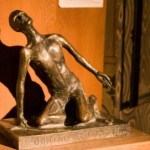 In J.K. Rowling’s world of Harry Potter, where the aim of education was to learn the extent of your spiritual powers and how to control them, first year students were assigned by The Sorting Hat to one of four houses, each defined by a paramount virtue: bravery; hard work; cleverness; or ambition. So the sorting, by which they had already been chosen to attend school, continued within the school, affecting everything from coursework to sport to alumni battles for direction of the school, to cosmic contention over good and evil.
In J.K. Rowling’s world of Harry Potter, where the aim of education was to learn the extent of your spiritual powers and how to control them, first year students were assigned by The Sorting Hat to one of four houses, each defined by a paramount virtue: bravery; hard work; cleverness; or ambition. So the sorting, by which they had already been chosen to attend school, continued within the school, affecting everything from coursework to sport to alumni battles for direction of the school, to cosmic contention over good and evil.
And a glance at the reality show of the nightly news shows us all these things, though with far more confusion about the forces of good and evil, and about our own part in the works of sorting.
I’ve just returned from some days in Philadelphia, celebrating a wedding between a widow and a widower, amazing people who drew together their dear ones from around the country, people with whom they have been joined in struggles for justice and peace over five decades. They’ve opposed wars in Vietnam and El Salvador, Iraq and Afghanistan, and traveled to bring aid to desperate people in Central America and Africa. They’ve championed economic and environmental justice, racial justice, women’s rights, gay rights.
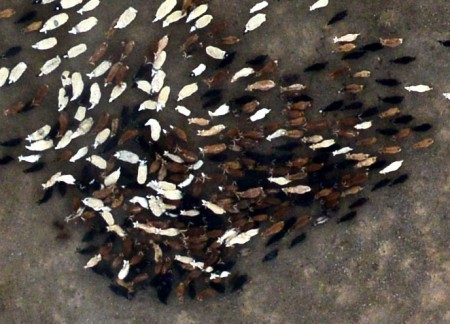 Their lives have been lived in constant sorting, of priorities, moralities, urgencies, pieties, and truths. They met in schools, like Rowlings’ students, where their values were shaped, and have spent their adult years in endless struggles their beliefs unfolded to them as necessary work.
Their lives have been lived in constant sorting, of priorities, moralities, urgencies, pieties, and truths. They met in schools, like Rowlings’ students, where their values were shaped, and have spent their adult years in endless struggles their beliefs unfolded to them as necessary work.
And so, as they reveled in their joyful memories of justice lived out in work, questions of justice remain, as age shifts their attention to eternity. What will justice, in eternity, be?
Jesus gave us an image of judgment for deeds in his story of the rich man Dives, who woke from death in hell and saw the poor man Lazarus, whom he had in life ignored, in heaven in Father Abraham’s arms. Yet in response to his questioners, who asked which of seven husbands a widow would serve in heaven, Jesus answered, none of them, saying in heaven there is no marrying, no order of relationships such as we know here, and such as we make holy war about.
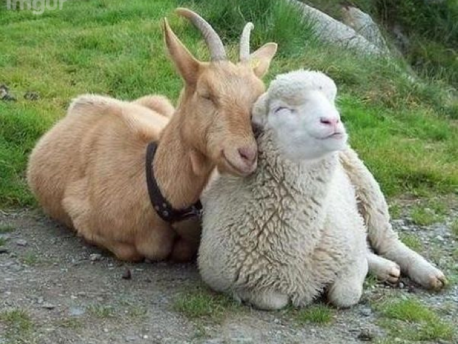 Matthew tells a story of Jesus holding up the Great Sorting of the sheep and the goats, a vision shown in the art and architecture of the great cathedrals of the world, where Christ sits enthroned, passing judgment on people endlessly, sorting us into heaven and hell based on our deeds. In Matthew’s story, Jesus said it was deeds of kindness to the suffering and needy that would sort us. In the Church’s teaching it is more about our sexual lives than anything else. The Church year draws to its end, and the vision Matthew holds out is sobering. What are we, sheep or goats? And what have we done with our days?
Matthew tells a story of Jesus holding up the Great Sorting of the sheep and the goats, a vision shown in the art and architecture of the great cathedrals of the world, where Christ sits enthroned, passing judgment on people endlessly, sorting us into heaven and hell based on our deeds. In Matthew’s story, Jesus said it was deeds of kindness to the suffering and needy that would sort us. In the Church’s teaching it is more about our sexual lives than anything else. The Church year draws to its end, and the vision Matthew holds out is sobering. What are we, sheep or goats? And what have we done with our days?
A quick Google check on sheep and goats shows a thousand images of them, living as one herd, eating the same grass, following the same shepherds, enduring the same weather, giving birth in the same perils, dying under similar conditions.
The catalogue of kindnesses and resentments, deep bonds and dirty tricks, delivered as only sheep and goats can deliver them, grows long in herd life. As it does in the human herd. Lying, cheating, stealing occur in every herd and flock, not just humans. Creatures great and small have a memory for abuse, scars on the heart and the mind.
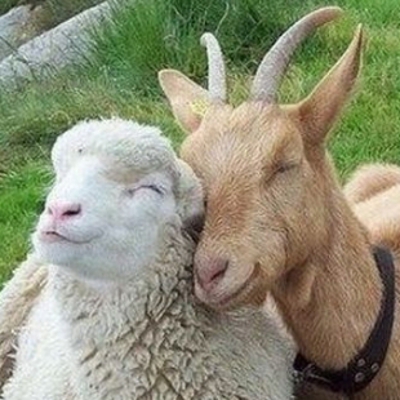 The goats do take a beating in this Bible tale, simply for being what they are, goats. And as the science of the human brain extends our knowledge of what we are, we’ve learned a similar thing: that, from our different sexuality to our different sociability, even extending to sociopathy, these are genetically controlled traits.
The goats do take a beating in this Bible tale, simply for being what they are, goats. And as the science of the human brain extends our knowledge of what we are, we’ve learned a similar thing: that, from our different sexuality to our different sociability, even extending to sociopathy, these are genetically controlled traits.
We’ve always known we live together in a very mixed herd. Every Thanksgiving table holds what Garrison Keillor calls the family who are unhappy to be there, the rock-ribbed conservatives and the dedicated liberals, meat-eaters and vegans, the elder brothers and the prodigals, the prosperous and the unemployed, the ornery and the addled. I remember my grandmother making six kinds of stuffing, trying to please everyone at her table. I also remember endless discussions about theology between the many clergy, Episcopal, Congregational, and Unitarian, in our clan, and, at age 11, going to a friend’s house in the afternoon and discovering other families watched football instead of debating about heaven.
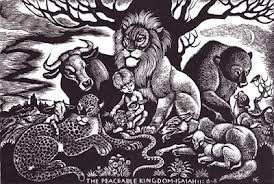 Sorting is a necessary part of this life, a part of identity formation, even an aspect of love. But it is not a great image of the kingdom: a place for some and not others. The welter of other images Jesus gives us for the kingdom – the great and sheltering tree – leavened flour that feeds everyone – the wedding feast full of strangers – the Seder of the all-embracing covenant – the fulfilment of Isaiah’s vision of the lion and lamb lying down together – the promise that all, all, will be lifted up with him, belie the Great Sorting, the image of Outer Darkness, and the idea of being Cast Away.
Sorting is a necessary part of this life, a part of identity formation, even an aspect of love. But it is not a great image of the kingdom: a place for some and not others. The welter of other images Jesus gives us for the kingdom – the great and sheltering tree – leavened flour that feeds everyone – the wedding feast full of strangers – the Seder of the all-embracing covenant – the fulfilment of Isaiah’s vision of the lion and lamb lying down together – the promise that all, all, will be lifted up with him, belie the Great Sorting, the image of Outer Darkness, and the idea of being Cast Away.
What would we be without each other? Without families who produce sons who become Moslem and daughters who move to Iran to write the stories of women there? Without soldiers whose PTSD adds a difficult dimension to every feast, without teens with orange hair and nose rings and grandmothers with blue hair and clip-on earrings? Without rearranged family tables like my newlywed friends with their assorted grandchildren, and families like the Browns in Ferguson MO over whom Michael’s spirit will hover as a blessing?
We prepare for the season ahead with a Great Ingathering. And it is a better image, Christ the Welcomer, arms open for all of us, than Christ the Sorter of the Blessed and the Damned.
____________________________________________________________
Illustrations:
1. The Sorting Hat. freeze frame from Harry Potter film. Google Images.
2. Counting the Herds, South Gobi aerial census photo. Google Images.
3. Sheep and Goat. Google Images.
4. Sheep and Goat. Google Images.
5. Peaceable Kingdom. by Fritz Eichenberg, Isaiah 11:6–8, 1950, wood engraving. Block Museum, 1992. – See more at: http://www.blockmuseum.northwestern.edu/muse/words-and-images/2011/the-peaceable-kingdom.html#sthash.HznBUldb.dpufGoogle Images.




